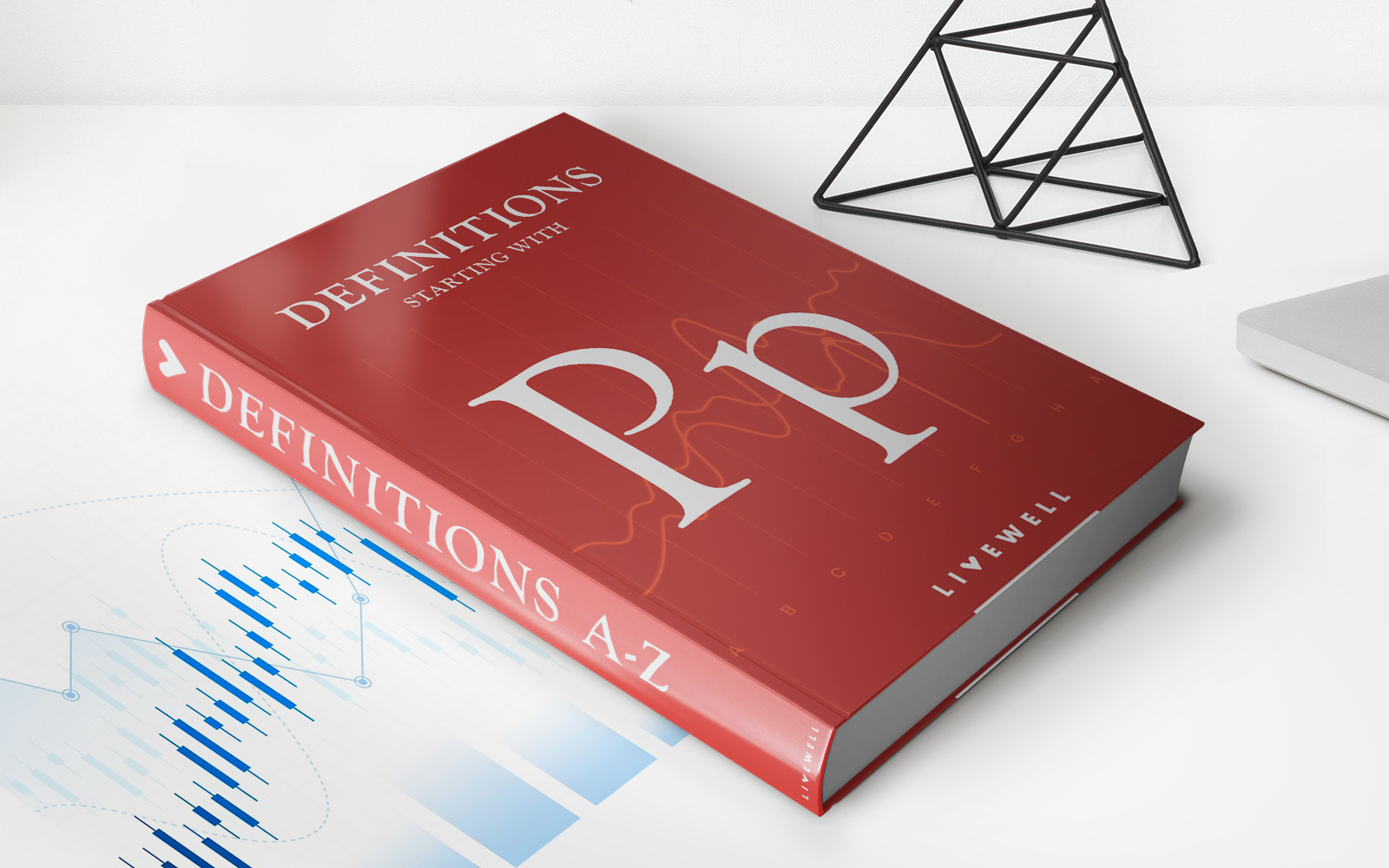

Finance
What Can I Get With A 667 Credit Score
Published: October 21, 2023
Discover what financial options are available to you with a 667 credit score. Explore various financing options and start your journey towards improved credit and financial stability.
(Many of the links in this article redirect to a specific reviewed product. Your purchase of these products through affiliate links helps to generate commission for LiveWell, at no extra cost. Learn more)
Table of Contents
- Introduction
- What is a 667 credit score?
- Understanding credit scores and ranges
- Effects of a 667 credit score
- Can you get a mortgage with a 667 credit score?
- Can you get a car loan with a 667 credit score?
- Credit card options with a 667 credit score
- Renting an apartment with a 667 credit score
- Ways to improve a 667 credit score
- Conclusion
Introduction
Having a good credit score is crucial for your financial well-being. It determines your ability to secure loans, obtain favorable interest rates, and even rent an apartment. If you have a 667 credit score, you may be wondering what options are available to you.
A credit score of 667 falls into the fair credit range, which means that while it is not considered excellent, it is also not considered poor. It’s important to understand the implications of your credit score and how it can impact your financial opportunities.
This article will explore what you can expect with a 667 credit score, including the possibilities of obtaining a mortgage, getting a car loan, securing credit cards, and renting an apartment. Additionally, we will provide some tips on how to improve your credit score to open up more opportunities in the future.
It’s important to note that credit score requirements may vary between lenders and institutions, so be sure to check with specific lenders to fully understand your options.
Let’s dive in and explore what you can get with a 667 credit score and how to improve it.
What is a 667 credit score?
A 667 credit score is considered to be in the fair credit range according to most credit scoring models, such as FICO and VantageScore. Credit scores typically range from 300 to 850, with higher scores indicating better creditworthiness. While a 667 score is not considered excellent, it is also not considered poor.
When calculating your credit score, various factors are taken into account, including your payment history, credit utilization, length of credit history, types of credit, and recent credit inquiries. A 667 score suggests that you have generally managed your credit responsibly but may have some missed payments or higher credit utilization.
It’s important to understand that lenders use credit scores as a way to assess the risk of lending money to individuals. With a 667 credit score, you may still qualify for certain loans, credit cards, and other financial products, but you may not be eligible for the most competitive interest rates and terms.
It’s worth noting that credit score ranges can vary slightly depending on the scoring model used. For example, some lenders may consider a score of 670 as the threshold for good credit, while others may use different benchmarks. Therefore, it’s always a good idea to check with the specific lender or financial institution to understand how they interpret credit scores.
Now that you have a basic understanding of what a 667 credit score represents, let’s explore the effects it can have on your financial opportunities.
Understanding credit scores and ranges
When it comes to credit scores, it’s essential to understand the different ranges and what they signify. Here’s a breakdown of the typical credit score ranges:
- Poor: 300-579
- Fair: 580-669
- Good: 670-739
- Very Good: 740-799
- Excellent: 800-850
A 667 credit score falls within the fair range. While it’s not the highest score, it still indicates that you have demonstrated some responsible credit behavior. However, as you move up in the credit score range, you’ll have access to better financial opportunities.
Lenders and financial institutions use credit scores to assess your creditworthiness and determine the risk involved in lending to you. A higher credit score generally signifies that you are more likely to repay your debts on time and manage your finances responsibly.
Here are some key considerations for each credit score range:
Poor
A poor credit score suggests that there have been significant credit issues, such as missed payments, defaults, or bankruptcy. Access to credit and favorable terms may be limited, and you may need to work on improving your score.
Fair
A fair credit score, like 667, indicates that you have a decent credit history, but there may be some missed payments or higher credit card balances. While you may still qualify for loans and credit cards, competitive interest rates and terms may be more difficult to obtain.
Good
A good credit score shows that you have a solid credit history and demonstrates responsible credit management. With a score in the 670-739 range, you should have access to a wide range of financial products and better interest rates.
Very Good
A very good credit score signifies that you have excellent credit management habits. Financial institutions often view scores in the 740-799 range favorably, granting you access to the most competitive interest rates and terms.
Excellent
An excellent credit score, typically 800 or higher, demonstrates exceptional creditworthiness. With an excellent score, you are likely to have access to the best interest rates and terms across a wide range of financial products.
Understanding the credit score ranges is crucial for assessing your financial standing and understanding the available opportunities. With a 667 score, you have a fair credit rating, but there is still room for improvement to achieve even better financial possibilities.
Effects of a 667 credit score
Your credit score has a significant impact on your financial life. With a 667 credit score, you may experience both advantages and disadvantages in various areas. Let’s explore some of the effects of having a 667 credit score:
Access to credit:
With a fair credit score of 667, you should still have access to credit products such as loans, credit cards, and lines of credit. However, compared to individuals with higher scores, you may face more restrictions and higher interest rates when applying for credit.
Interest rates:
One of the most significant effects of a 667 credit score is the impact on the interest rates you are offered. Lenders use credit scores to assess the risk of lending to you, and a lower credit score means you may be considered higher risk. As a result, you may be offered loans and credit cards with higher interest rates, which can increase the overall cost of borrowing.
Loan approvals:
While you can still be approved for loans with a 667 credit score, you may face more scrutiny from lenders. They may review your application more carefully and may require additional documentation or collateral to secure the loan. Keep in mind that your credit score is just one of many factors that lenders consider when approving or denying a loan application.
Housing options:
Your credit score can also affect your ability to rent an apartment or a house. Landlords often conduct credit checks as part of the application process, and a lower credit score may raise concerns about your ability to pay rent on time. You may need to provide additional references or demonstrate a stable income to compensate for a lower credit score.
Insurance premiums:
Some insurance companies use credit scores as a factor in determining premiums for auto, home, or renters insurance. Individuals with lower credit scores may be charged higher premiums due to the perceived higher risk of filing claims. It’s important to keep an eye on insurance costs and shop around for the best rates.
Employment prospects:
While a credit score is not typically a direct determinant for employment, some employers may conduct credit checks as part of the hiring process, particularly for positions that involve financial responsibilities. A lower credit score may raise concerns about your financial stability and ability to handle money responsibly.
While a 667 credit score may present some challenges, it’s important to remember that it’s not the final word on your financial health. By understanding the effects of your credit score, you can take steps to improve it and expand your financial opportunities.
Can you get a mortgage with a 667 credit score?
If you have a credit score of 667, you may be wondering if it’s possible to qualify for a mortgage. The good news is that it is indeed possible to secure a home loan with a fair credit score, although there may be some limitations and additional considerations.
Lenders consider a variety of factors when approving a mortgage application, and credit score is one of the key factors. While a 667 credit score is not considered excellent, it is still within the fair range and may be sufficient for certain lenders.
Here are some important points to keep in mind if you’re looking to get a mortgage with a 667 credit score:
1. Shop around for lenders:
Not all lenders have the same credit score requirements for mortgages. Some may be more flexible and willing to work with borrowers with fair credit. Take the time to research and compare lenders to find those that are willing to consider your credit score.
2. Be prepared for higher interest rates:
With a credit score of 667, you may be offered slightly higher interest rates compared to those with better credit scores. This is because lenders view individuals with lower credit scores as higher risk borrowers. However, with time and responsible payment history, you may be able to refinance your mortgage later to secure a lower interest rate.
3. Consider a larger down payment:
If you can afford it, making a larger down payment can improve your chances of getting approved for a mortgage with a fair credit score. A larger down payment reduces the lender’s risk and may make them more willing to overlook a lower credit score.
4. Demonstrate a stable income and financial stability:
While lenders consider your credit score, they also evaluate your income and financial stability. A stable job history and a solid income can help offset a lower credit score. Be prepared to provide documentation such as pay stubs, tax returns, and bank statements to demonstrate your financial stability.
5. Work on improving your credit score:
While it may be possible to secure a mortgage with a 667 credit score, it’s always a good idea to work on improving your credit. Paying your bills on time, reducing debt, and keeping credit utilization low can help boost your credit score over time. Consider seeking advice from a financial professional or credit counselor to develop a plan to improve your credit.
In summary, while it may be more challenging to get a mortgage with a 667 credit score, it is still possible. Shopping around for lenders, being prepared for higher interest rates, making a larger down payment, and demonstrating financial stability can increase your chances of approval. Additionally, working on improving your credit score can provide long-term benefits and open up more favorable mortgage options in the future.
Can you get a car loan with a 667 credit score?
If you have a credit score of 667, you may be wondering if you can get approved for a car loan. The good news is that it is possible to secure a car loan with a fair credit score, although there may be some factors to consider.
When applying for a car loan, lenders assess your creditworthiness and determine the interest rate and terms based on factors including your credit score, income, and debt-to-income ratio. With a credit score of 667, you fall into the fair credit range, which means lenders may view you as a higher risk borrower compared to those with higher credit scores.
Here are some key considerations if you’re looking to get a car loan with a 667 credit score:
1. Shop around for lenders:
Not all lenders have the same credit requirements for car loans. Some may be more willing to work with borrowers with fair credit scores. Take the time to research and compare lenders to find those that are more accommodating to your credit situation.
2. Prepare for higher interest rates:
With a 667 credit score, you may be offered a car loan at a higher interest rate compared to those with better credit scores. This is because lenders consider individuals with lower credit scores as higher risk borrowers. Be prepared for potentially higher monthly payments due to the higher interest rate.
3. Consider a larger down payment:
Making a larger down payment can improve your chances of getting approved for a car loan with a fair credit score. A larger down payment not only reduces the amount you need to finance but also shows the lender that you are committed and have the financial means to repay the loan.
4. Evaluate your budget:
Before taking on a car loan, carefully consider your budget and ensure that you can comfortably afford the monthly payments. Factor in other car-related expenses such as insurance, maintenance, and fuel costs to get a complete picture of the financial commitment involved.
5. Work on improving your credit:
While you may be able to secure a car loan with a 667 credit score, it’s always beneficial to work on improving your credit over time. Make consistent, on-time payments on all your credit accounts and strive to reduce your overall debt. Over time, these actions can contribute to improving your credit score and qualifying for better loan terms in the future.
In summary, it is possible to get a car loan with a 667 credit score. Shopping around for lenders, being prepared for higher interest rates, considering a larger down payment, evaluating your budget, and working on improving your credit can all increase your chances of approval and help you secure a car loan that suits your needs and financial situation.
Credit card options with a 667 credit score
If you have a credit score of 667, you may be wondering what credit card options are available to you. While a 667 credit score is considered fair, there are still credit card options you can explore. Here are some factors to consider when looking for credit cards with this credit score:
1. Secured credit cards:
Secured credit cards are an excellent option for individuals with fair credit scores. With a secured card, you provide a deposit as collateral, which acts as your credit limit. These cards are designed to help you build or rebuild your credit history. Make sure to find a secured card with reasonable fees and reports to all major credit bureaus.
2. Store credit cards:
Many retail stores offer credit cards specifically designed for their customers. These cards often have lower credit requirements, making them more accessible for individuals with fair credit scores. However, be cautious of high interest rates and limited usability, as many store cards can only be used at specific retailers.
3. Credit builder loans:
Credit builder loans are installment loans specifically designed to help you build credit. With a credit builder loan, you borrow a small amount and make fixed monthly payments over a set period. Once the loan is repaid, you receive the funds. These loans show positive payment history, which can help improve your credit score over time.
4. Become an authorized user:
If you have a trusted family member or friend with good credit, you can ask them to add you as an authorized user on their credit card. Being an authorized user can help you benefit from their positive payment history. It’s crucial to ensure that the primary cardholder pays the bills on time and maintains a low balance for this strategy to be effective.
5. Credit union cards:
Credit unions are member-owned financial institutions that offer various financial products, including credit cards. They often have more flexible underwriting criteria and may be more willing to work with individuals with fair credit scores. Check with local credit unions to explore credit card options that suit your needs.
When selecting a credit card, it’s important to read the terms and conditions, including the interest rate, annual fees, and any other charges. Additionally, responsible credit card usage, such as making on-time payments and keeping credit utilization low, can help you improve your credit score over time.
Remember that every credit card application may result in a hard inquiry on your credit report, which can temporarily lower your credit score. Therefore, it’s essential to research and apply for cards that are within your credit score range and have a high likelihood of approval.
Building and maintaining good credit requires patience and responsible financial habits. By exploring credit card options suited for your credit score and using credit responsibly, you can improve your credit profile over time and gain access to better credit card offers in the future.
Renting an apartment with a 667 credit score
When it comes to renting an apartment, landlords often consider credit scores as part of the application process to assess an applicant’s financial responsibility. With a credit score of 667, which falls into the fair credit range, there may be some considerations when renting an apartment. Here’s what you need to know:
1. Be prepared to explain:
If you have a fair credit score, it’s a good idea to be prepared to explain any negative items on your credit report to potential landlords. This could include late payments, collections, or other credit issues. Be honest and provide any relevant context or explanations that may alleviate concerns.
2. Offer additional documentation:
To counterbalance a fair credit score, consider providing additional documentation to show your financial stability. This could include proof of income, employment verification, or previous rental history with positive references. These documents can demonstrate your ability to pay rent on time and reassure landlords.
3. Seek out individual landlords or small management companies:
Individual landlords or small management companies may be more flexible and willing to work with applicants who have fair credit scores compared to larger corporate rental companies. These landlords may take a more holistic approach to the application process, considering factors beyond just credit scores.
4. Offer a larger security deposit:
If you have the means to do so, offering a larger security deposit can help alleviate concerns for landlords. A higher deposit provides an added layer of security for them in case of any potential rental payment issues. Be sure to review local laws and regulations regarding security deposit limits.
5. Consider a co-signer:
If you’re facing difficulties due to your credit score, you may want to consider finding a co-signer with a strong credit history. A co-signer essentially guarantees the lease and can provide landlords with more confidence in your ability to fulfill your rental obligations. Keep in mind that asking someone to co-sign is a significant responsibility, so make sure you have clear communication and understanding with them.
6. Look for rental opportunities in less competitive markets:
In highly competitive rental markets, landlords often have many qualified applicants to choose from, and they may have stricter criteria when it comes to credit scores. Consider exploring rental opportunities in less competitive areas where landlords may be more willing to work with applicants with fair credit scores.
Although a fair credit score of 667 may present some challenges when renting an apartment, it doesn’t necessarily preclude you from finding suitable housing. It’s essential to be proactive, present yourself as a responsible tenant, and explore various rental options to increase your chances of finding a suitable apartment.
Ways to improve a 667 credit score
If you have a credit score of 667, you may be wondering how to improve it to access better financial opportunities. While it may take time and effort, there are several strategies you can implement to improve your credit score. Here are some effective ways to boost your creditworthiness:
1. Pay your bills on time:
Consistently making on-time payments is one of the most crucial factors in improving your credit score. Late payments can have a significant negative impact and stay on your credit report for up to seven years. Set up automatic payments or reminders to ensure you pay your bills by their due dates.
2. Reduce your credit card balances:
High credit card balances can negatively affect your credit utilization ratio, which is the amount of credit you’re using compared to your total available credit. Aim to keep your utilization below 30% to improve your credit score. Consider paying down your balances or requesting credit limit increases to lower your utilization ratio.
3. Diversify your credit mix:
Having a diverse mix of credit accounts, such as credit cards, loans, and a mortgage, can positively impact your credit score. This shows lenders that you can manage different types of credit responsibly. However, avoid opening new accounts just to diversify your credit mix, as this can temporarily lower your score due to new inquiries and reduced average account age.
4. Limit new credit applications:
Each time you apply for new credit, it results in a hard inquiry on your credit report, which can slightly lower your score. Be selective and avoid applying for multiple new credit accounts within a short period. Instead, focus on maintaining and improving your existing accounts.
5. Check and dispute errors on your credit report:
Regularly review your credit reports from the three major credit bureaus – Equifax, Experian, and TransUnion – to ensure that all the information is accurate. If you find any errors or discrepancies, such as incorrect payment histories or accounts that don’t belong to you, file a dispute to have them corrected. Removing errors can have a positive impact on your credit score.
6. Be patient and consistent:
Improving your credit score takes time and consistent effort. Focus on building positive financial habits and maintaining responsible behaviors over the long term. As you demonstrate responsible credit management, your score will gradually improve.
Remember that everyone’s credit journey is unique, and individual credit scores can fluctuate based on various factors. It’s important to be patient, stay committed to improving your credit, and seek guidance from financial professionals or credit counseling services if needed.
By implementing these strategies and maintaining discipline with your credit management, you can steadily improve your credit score over time and open up better financial opportunities in the future.
Conclusion
Having a 667 credit score may not be ideal, but it does not mean that your financial prospects are limited. With a fair credit score, you still have options when it comes to obtaining a mortgage, securing a car loan, getting a credit card, and renting an apartment. While you may face some challenges, there are steps you can take to improve your credit score and enhance your financial opportunities.
By understanding how credit scores work and the range in which your score falls, you can better navigate the financial landscape. Take the time to explore different lenders, consider alternative options, and be proactive in improving your creditworthiness.
Remember, improving your credit score is a gradual process that requires discipline and responsible financial management. Pay your bills on time, keep your debt levels manageable, and regularly monitor your credit report for any errors or discrepancies.
Additionally, seek guidance from a financial advisor or credit counseling service if needed. They can provide personalized strategies and tips to help you navigate your specific financial situation and improve your credit score over time.
While a 667 credit score may present some challenges, it should not discourage you. With the right approach and a commitment to improving your credit, you can work towards achieving a higher score and accessing better financial opportunities in the future.
Remember, your credit score is not a reflection of your worth as an individual. It is merely a tool used by lenders to assess your creditworthiness. Focus on building healthy financial habits and making progressive steps towards improving your credit, and in due time, you will increase your chances of achieving your financial goals.














